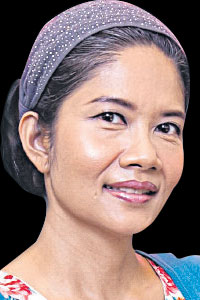Throughout 2018, several activities mark the centenary of public health in Thailand. Last week, an academic conference and an expo presenting progress over the last 100 years were held in conjunction with the 15th National Herbs Expo at Challenger, Impact Muang Thong Thani.
The series of events will culminate on Nov 27, the founding date of the Department of Health, which was later upgraded to a ministry during World War II.
From 1918 to 2018, fighting infectious diseases took up a whole chapter in the history of the country's public health.
In the 21st century, a new chapter is being written as noncommunicable diseases (NCDs) have claimed the lives of Thai people, outnumbering deaths from infectious diseases.
In 1918, our Siamese ancestors succumbed to smallpox, cholera and plague epidemics. Priorities of the Department of Health, then under the Ministry of Interior, included disease prevention and control as well as improvement of sanitation.
Over the last 100 years, we have been threatened by various infectious diseases, many of which have successfully been arrested by immunisation, such as the eradication of smallpox in 1962.
Viral health scares included the human immunodeficiency virus and Aids in the 1980s, the coronavirus and severe acute respiratory syndrome outbreak in the early 2000s, and the Zika virus epidemic in 2015-2016.
While we still have to watch out for nasty viruses and infectious diseases, the challenge in public health now includes curbing NCDs.
The Ministry of Public Health has already come up with the National NCDs Prevention and Control Plan, 2017-2021 to reduce the prevalence and huge economic burden of NCDs.
Reported on a World Health Organization website, NCDs are behind 71% of all deaths in Thailand, causing an estimated 354,000 deaths each year.
Heart disease, stroke, cancer, diabetes and chronic lung diseases have been named the predominant killers.
The increasing cases are related to elevated blood pressure, cholesterol and sugar, as well as obesity and being generally overweight highly observed among Thais, leading to policy formulation and implementation to counteract the metabolic risk factors.
The salt- and sodium-reduction policy, for instance, aims to prevent hypertension, whereas an excise tax on sugary beverages is a bid to reduce consumption and stem diabetes and obesity.
New regulations on restricting trans fat, associated with an increased risk of coronary heart disease, made the headlines last week, whereby all the production and import of trans fat will totally be banned from the country in the next six months.
Food products such as deep-fried doughnuts and puff pastries, along with ingredients such as shortening and margarine used in making the pastry or bread, have been associated with high levels of trans fats. The policy thus aims at changing the production in order to provide consumers with healthier food.
Also last week, the Foundation for Consumers reported that 26 of 62 poultry samples taken from Bangkok markets and stores tested positive for antibiotics, long-term consumption of which puts consumers at a higher risk of drug-resistance.
It seems like the world is overloaded with health-related statistics, surveys, findings, bans or anything in between. But at the end of the day, apart from all these data, consumer education is instrumental in disease prevention, and consumers need to be encouraged to take charge of their own health.
I need not look further to find someone with a set of risk factors for diabetes and coronary heart disease, since my recent health check-up found high blood sugar and cholesterol levels, not to mention being overweight and bulging belly fat.
Much of this has to do with my job, sitting hours using the computer -- a sedentary lifestyle being another risk factor for NCDs.
Even though we already are informed of how an unhealthy diet and sedentary lifestyle take a toll on our health, we can't easily break bad habits or kick ourselves out of a vicious cycle.
It's a battle within ourselves in exercising self-restraint, in making healthy choices and behavourial changes to keep ourselves in good shape and NCDs at bay.
Kanokporn Chanasongkram is a feature writer for the Life section of the Bangkok Post.
